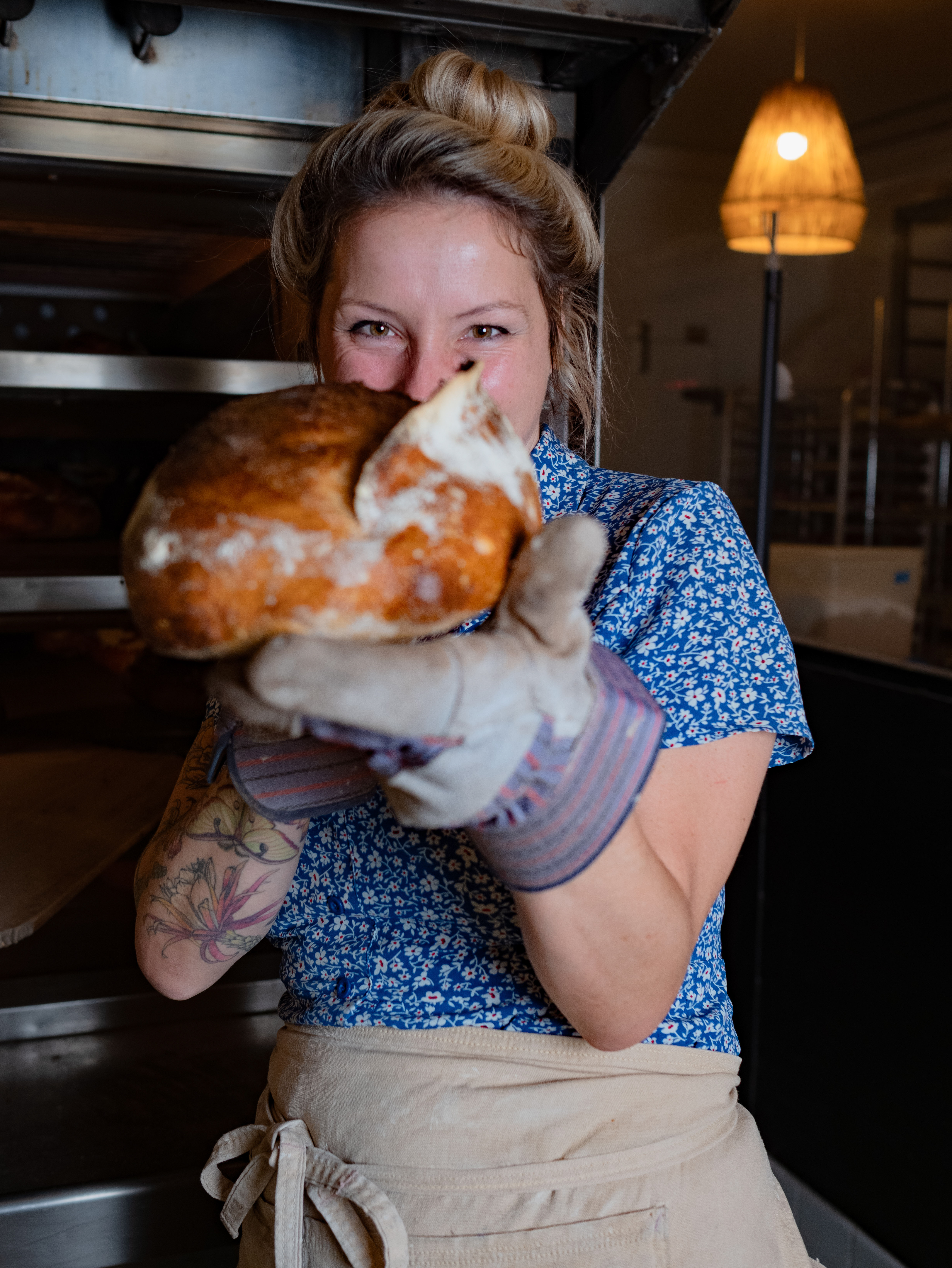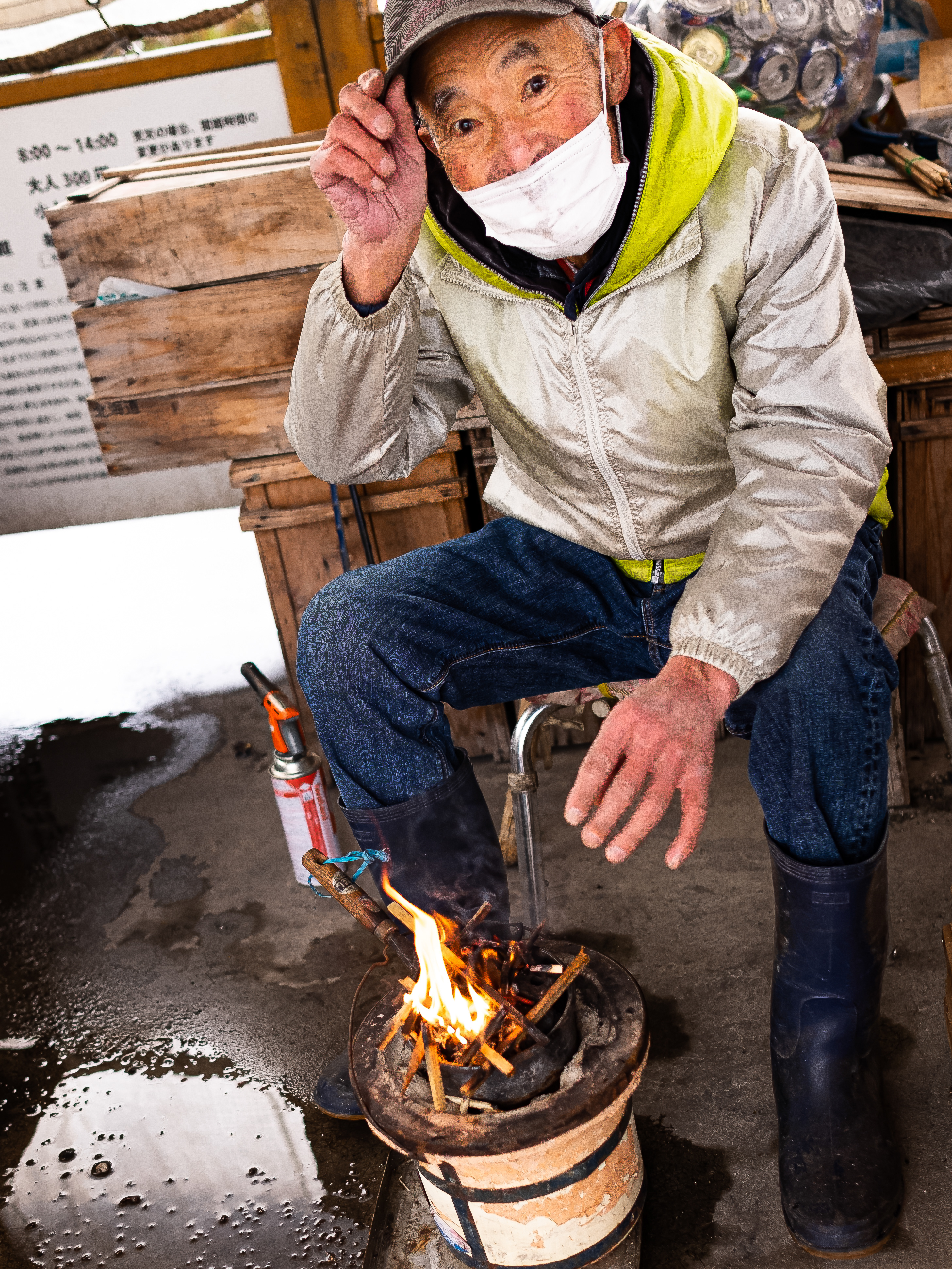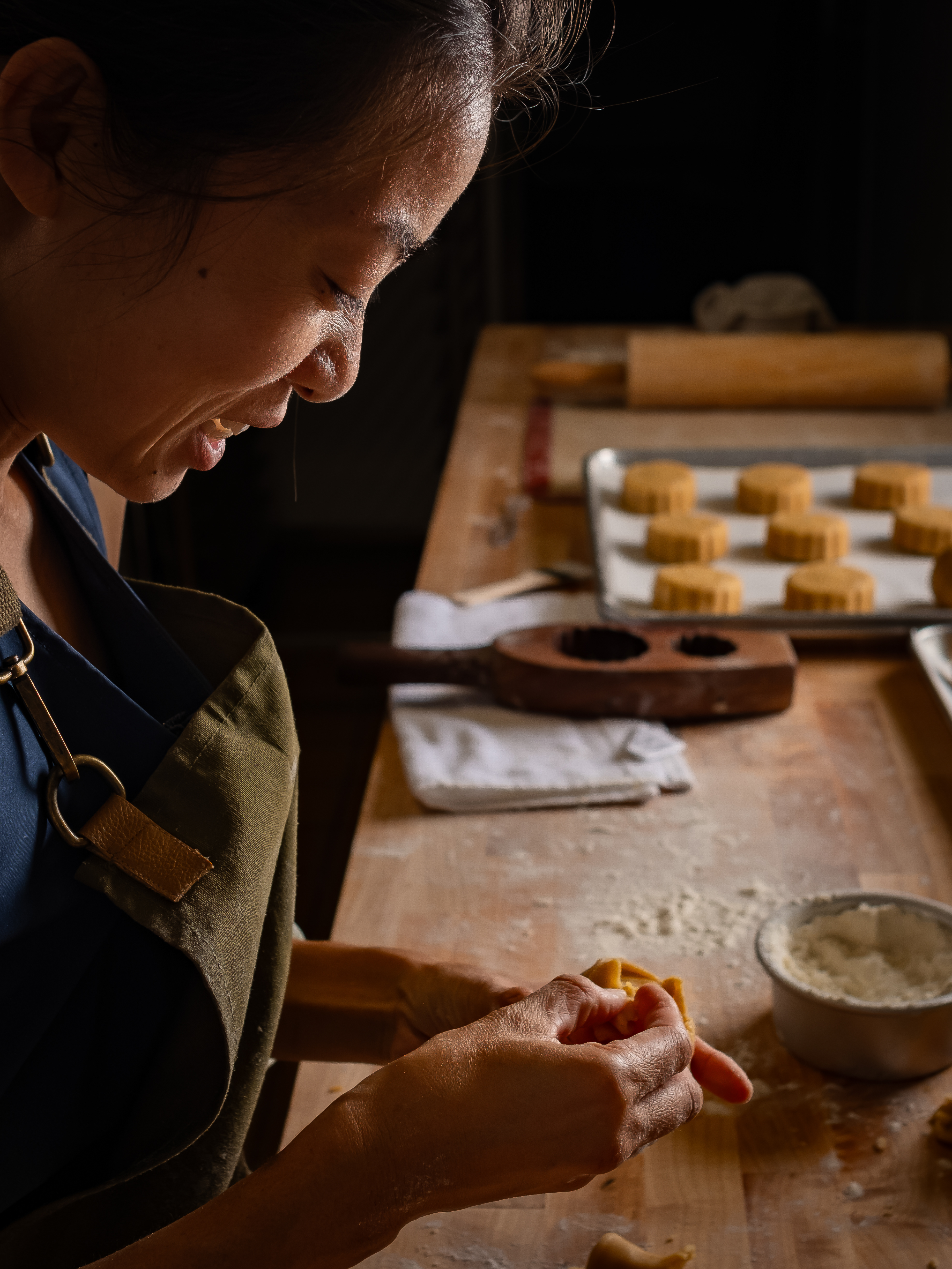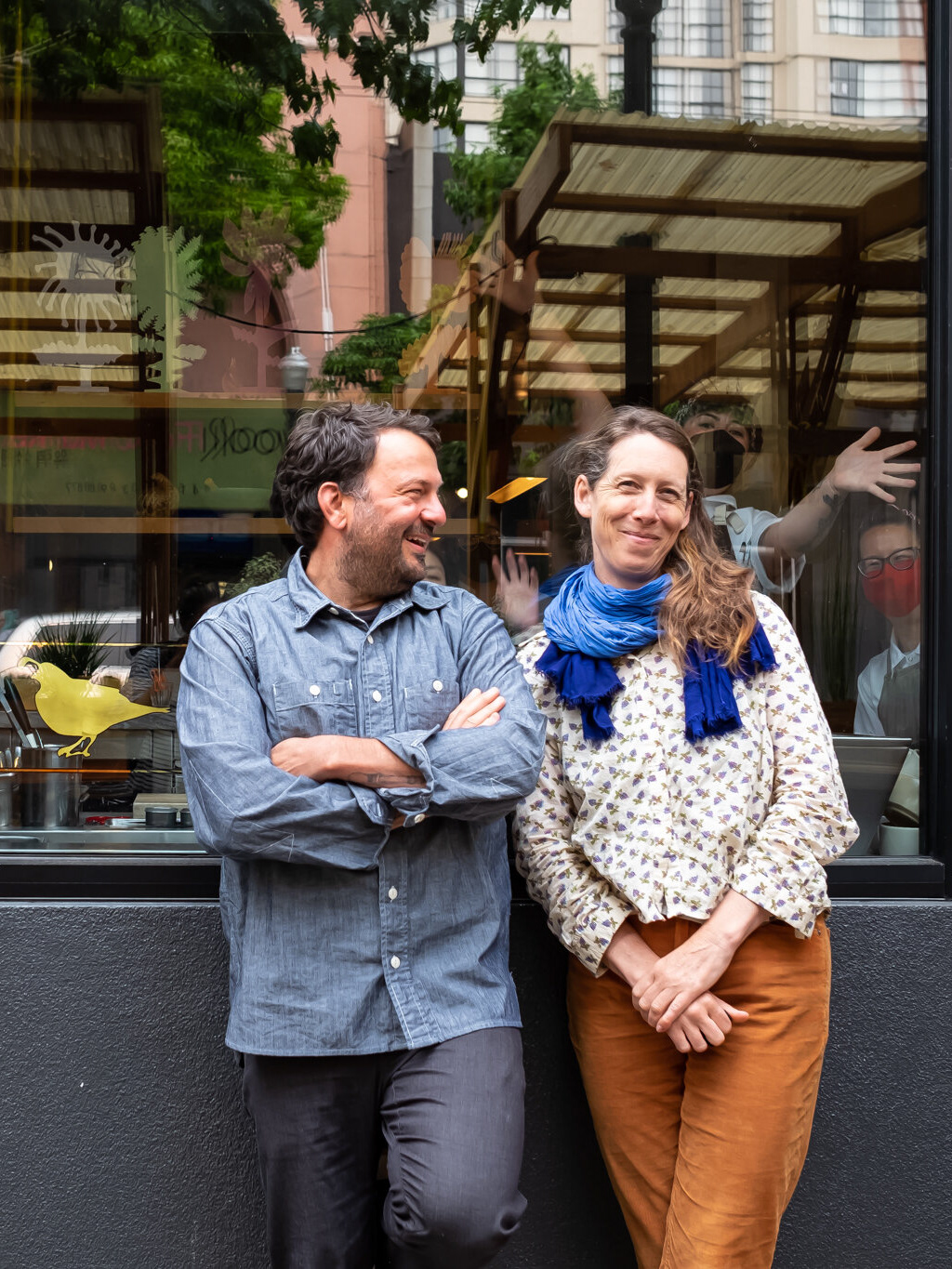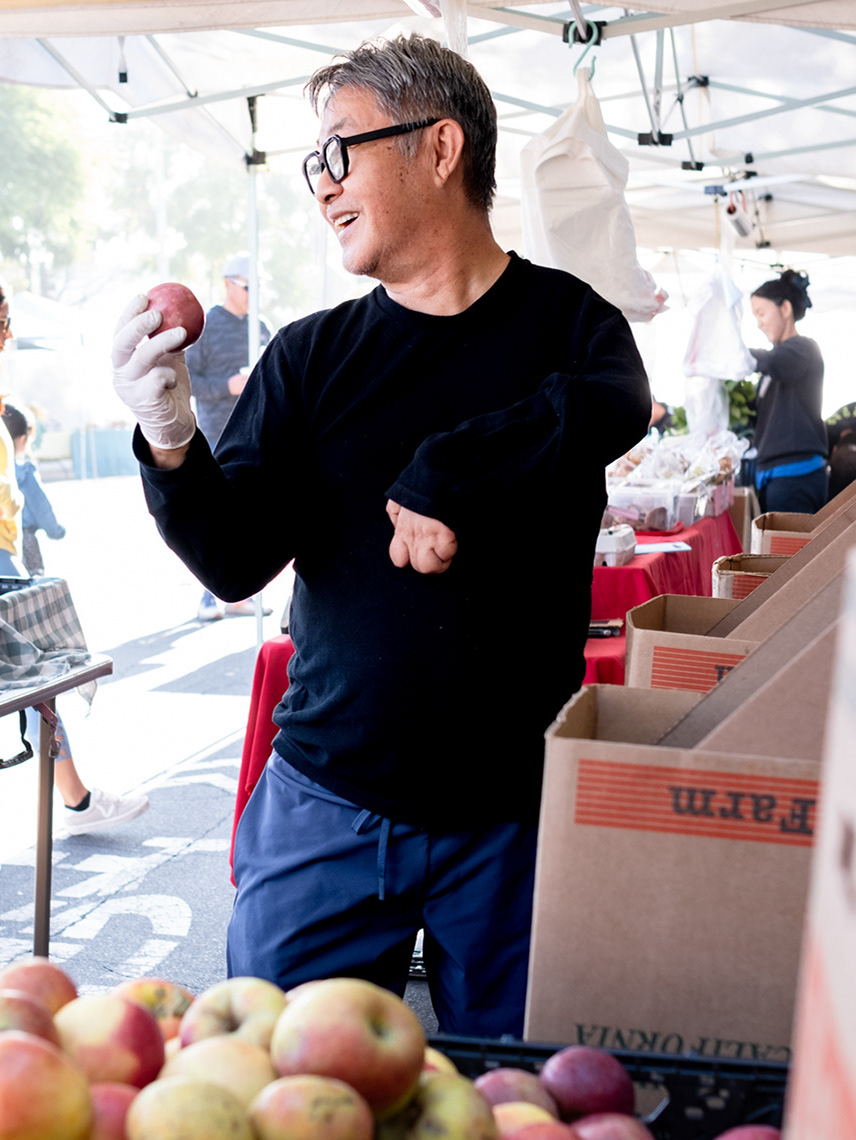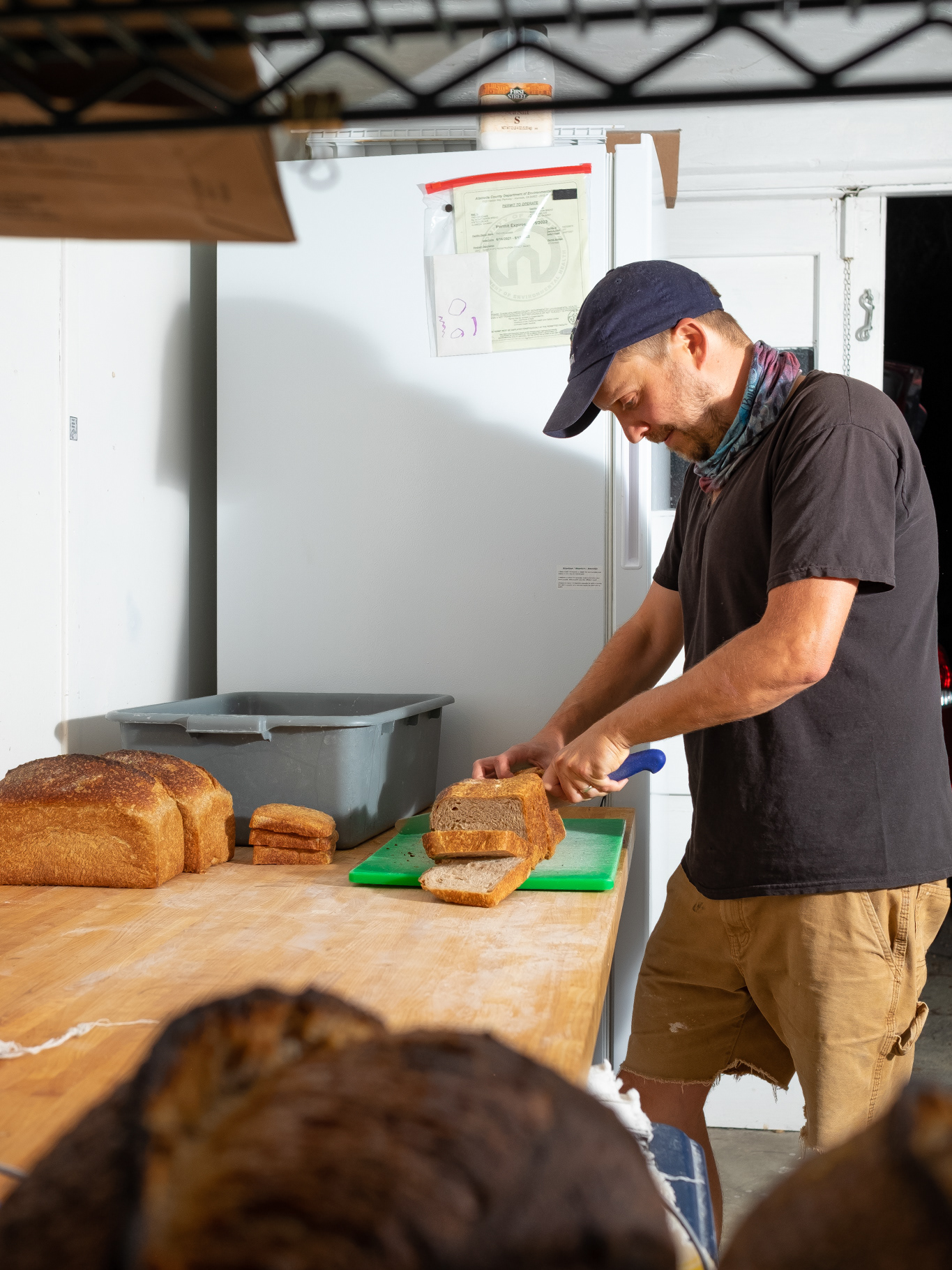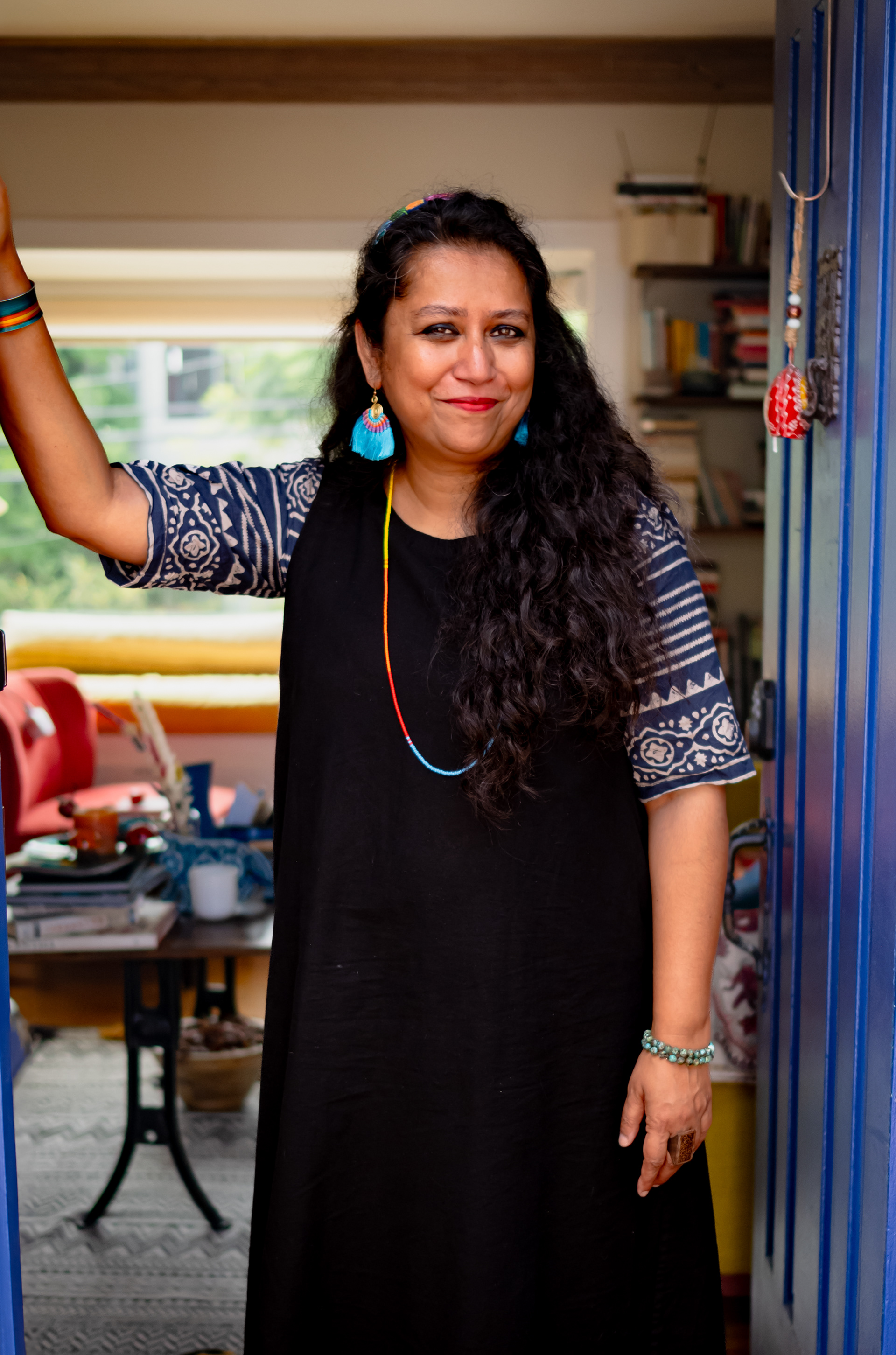
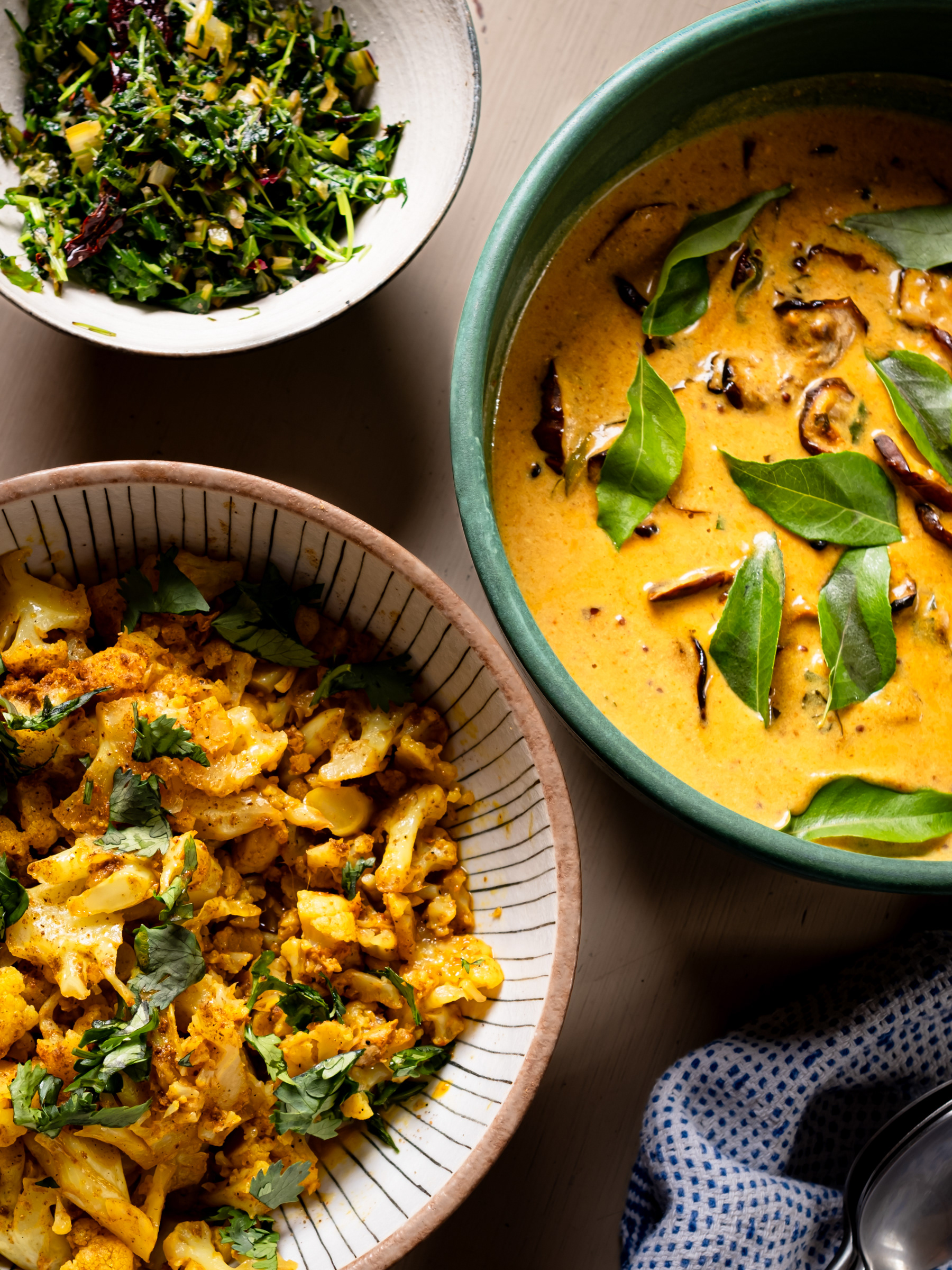
MADHUSHREE GHOSH
IN CONVERSATION WITH JANICE JANN
PHOTOGRAPHY BY JEN LO
Madhushree Ghosh loves talking about food. Not only about ingredients and cooking techniques but where food comes from, which hands grew it, produced it, prepared it and served it. She talks about it in her books, one a memoir titled, “Khabaar: An Immigrant Journey of Food, Memory and Family”, recounting her journey from India to the US as she asks the question of belonging. She talks about it in her upcoming book, “Safar: Traveling Home”, as she recounts the unique families, cultures and cuisines created from South Asians’ immigration through the American West. She talks about it with chefs, food and culture historians, authors, community leaders and change makers at her global literary salon and supper club, KhabaarCo, an offshoot to her 2023 TEDx talk titled, “What We Talk About When We Talk About Food.” We sat down to talk about her garden, her spice collection, her cooking style through the decades and more…
I feel in this day and age where we are so divided in so many different ways, it is imperative that we have a conversation.
Even if it is a conversation highlighting our differences. Because even when we highlight our differences we find something in common. That has been the main motivation of my food writing journey.
When you're talking about belonging, it's quite okay to say you belong to multiple planets.
It’s the same thing as when people say, “oh you know, I'm right brained or left brained.” To me that's bullsh*t because if that's what had to be then we would have just got a right brain and or a left brain but we have got the whole thing. We have been forced to think that if I am better in writing than that's what I do. If I'm better in science and that's what I do and you know, growing up in a culture where you know you have tiger moms and tiger dads and everybody wants you to do well, invariably the science people are told that you should not get into arts. I come from a family of journalists and my father was an eager participant in India’s freedom struggle, so social justice is part of my DNA. But I was very good in science and the whole point was, as a woman of color, where will you succeed? You’ll succeed in science outside of India and therefore that's what you should do.
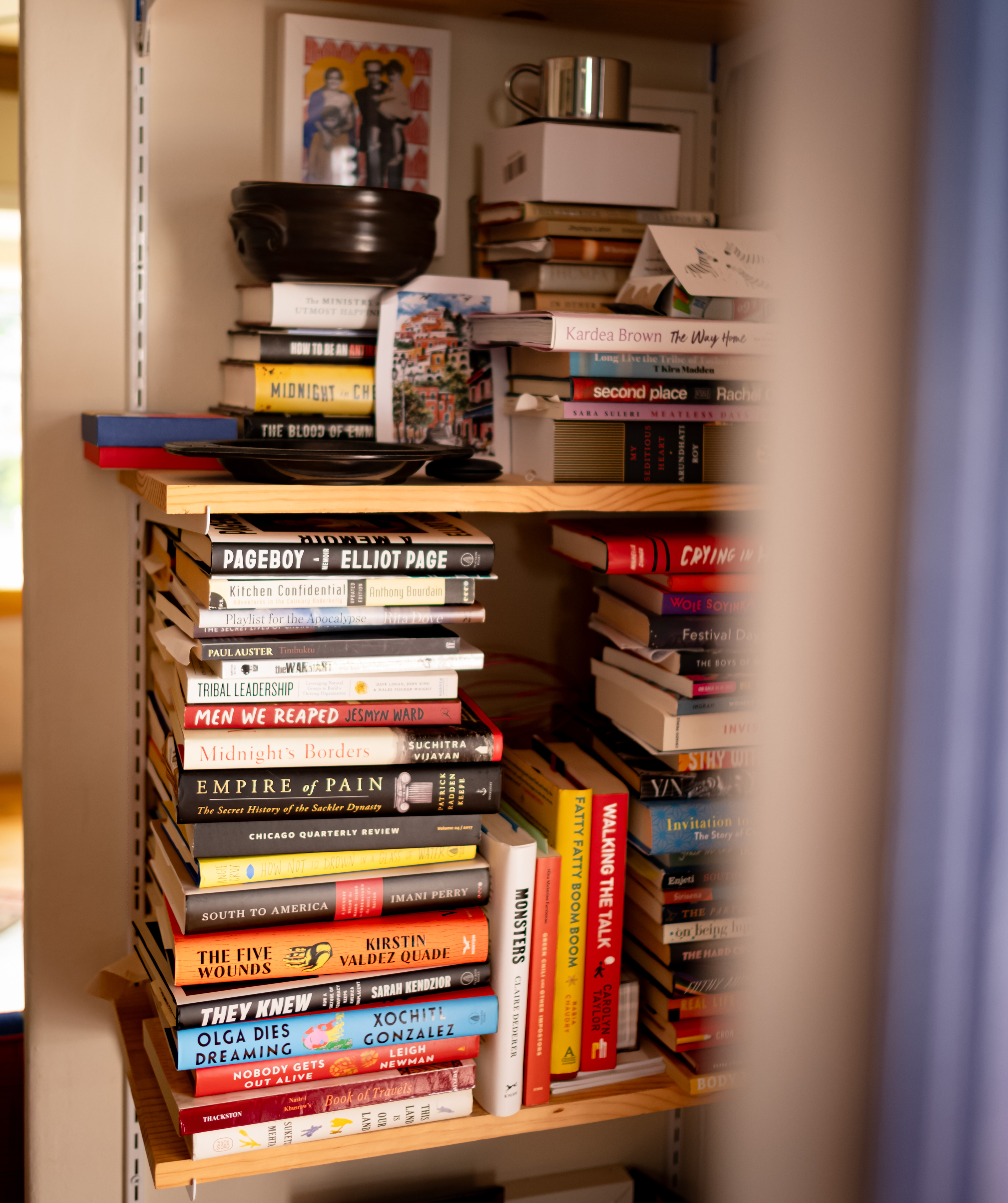
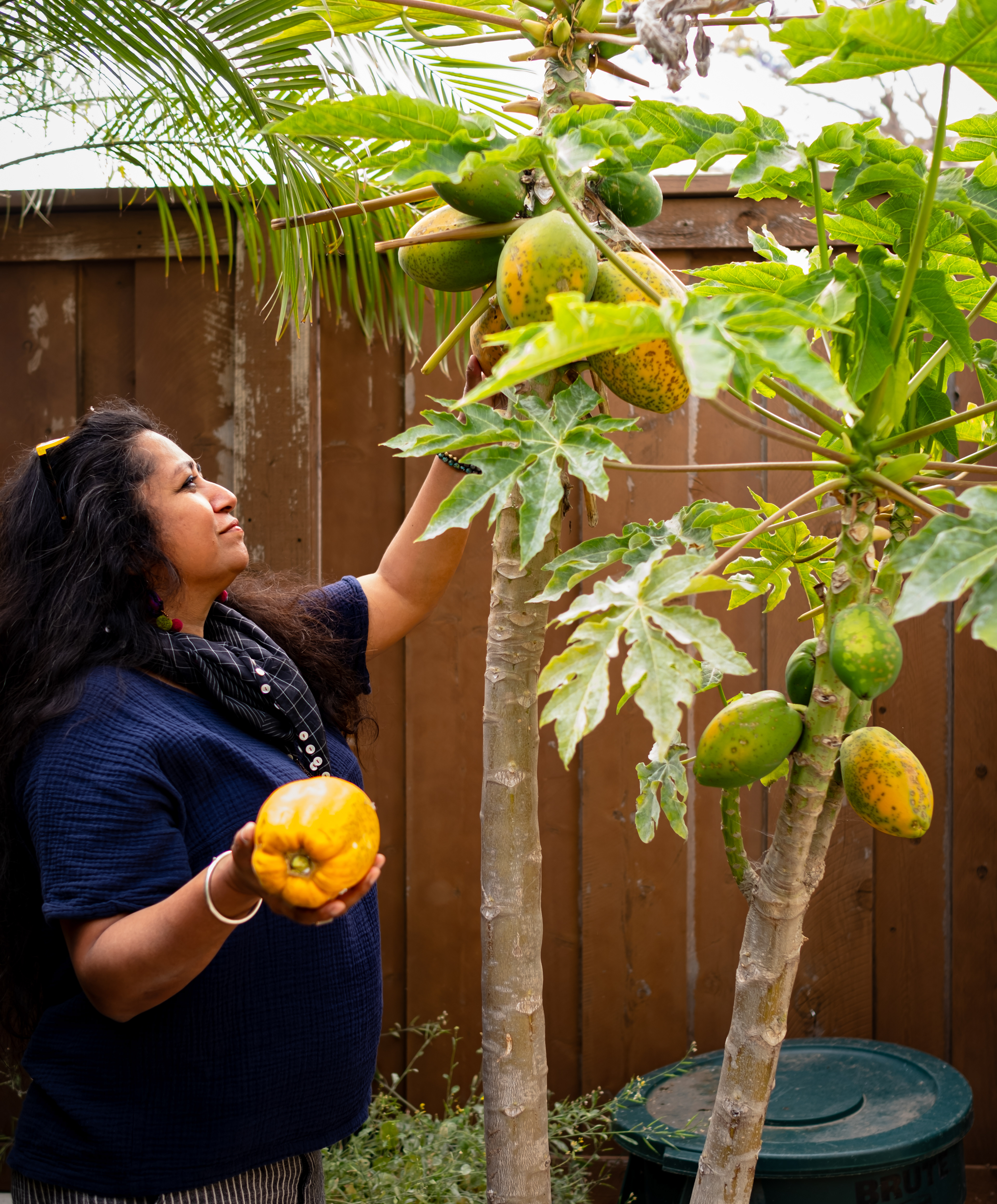
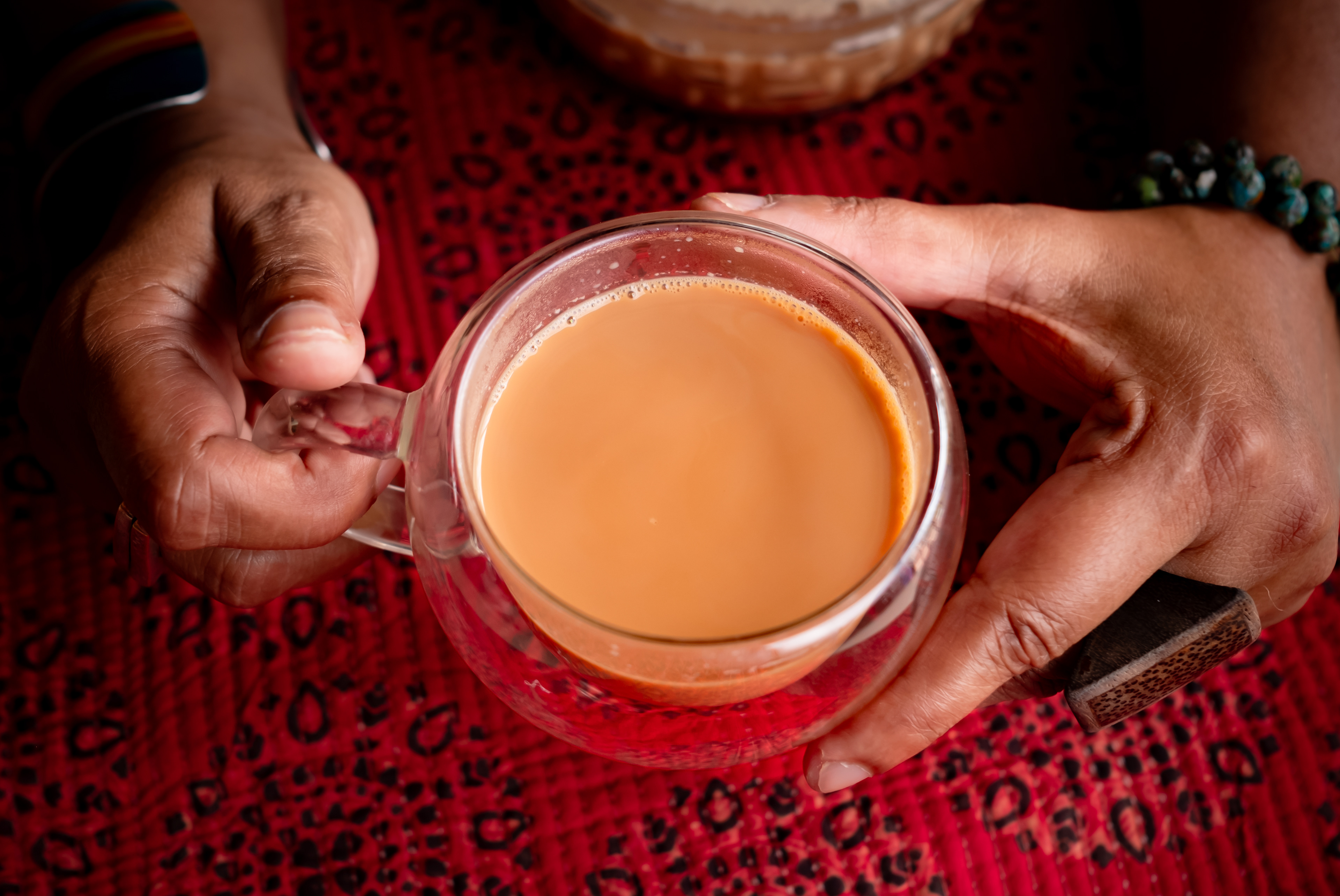
I actually stopped writing -
I was a published author in my mid-teens and then I stopped writing when I came to the US for graduate school. But then I started reading South Asian authors, because I was homesick and when you're homesick you try to go look for, you know, anything that you can connect with and the way I would connect to home, was through books. At that time, most of the work was fiction and most of the novels were talking about lives that's - number one - not true, it's fantasy. And number two, was really talking about these very traumatized sad women who needed a white Savior to come and save them. I just didn't identify with any of that. That motivated me to write my story with my worldview.
During the pandemic I realized I could actually grow my own food.
Now, most of what I eat are the vegetables that I get from my garden, whether it's beans or carrots or swiss chard.
I call the papayas in my garden my Whole Foods papaya tree
because [during the pandemic], when everybody was drinking a lot of wine, so was I! And so when I was trying to throw my wine bottles out one time into the recycling the bottles were clanking so much that I thought, “the neighbors are going to think you’re a total lush. I need to take care of my health” and so I went to Whole Foods and got a papaya which was filled with seeds and threw all those seeds in my garden not knowing what was going to happen and it took off.
In my 20s, my cooking could be described as brash.
It didn’t matter if I put one teaspoon of olive oil or 10 teaspoons of olive oil in my cooking. It was all the same to me. My favorite food was the luchi which was just a completely deep-fried roti-like dough and I could have ten of those a day.
In my 30s, I became much more confident in my cooking.
Both my parents passed away in that decade, so my sister and I were often cooking to try to recapture what we had lost and remember all these recipes that we used to have growing up. Luckily my sister remembered so much of it.
In my 40s, because of my divorce, I was cooking to get people around my dinner table.
Anything that my friends would like or enjoy. I also began to cook for one, which I still struggle with because my happy place is cooking for a party of 10 but I’m getting better at it.
Now in my 50s, I cook seasonally.
I cook using 2-3 things from my backyard, 2-3 things from the farmer’s market. Historically we’ve always eaten seasonally because you can only get beetroot in winter and squash in the summer. Nowadays, our bodies are just confused with all this food year-round.
The one spice that I love is panch phoron,
a mixture of 5 spices (cumin, fenugreek, brown mustard seeds, fennel and nigella seeds) which you can use for so many dishes. And what I love to use that spice for is in tomato chutney - the kind that my mother used to make. And what I love to do is make my own chutney, make dahl with lentil and spoon a bit of the chutney in there. It’s the ultimate comfort food.
Be sure to follow Madhushree at @WriteMadhushree on Instagram. Her next KhabaarCo event will be on August 20th (6-8pm) at 1827 Main Street B, Barrio Logan, San Diego.
